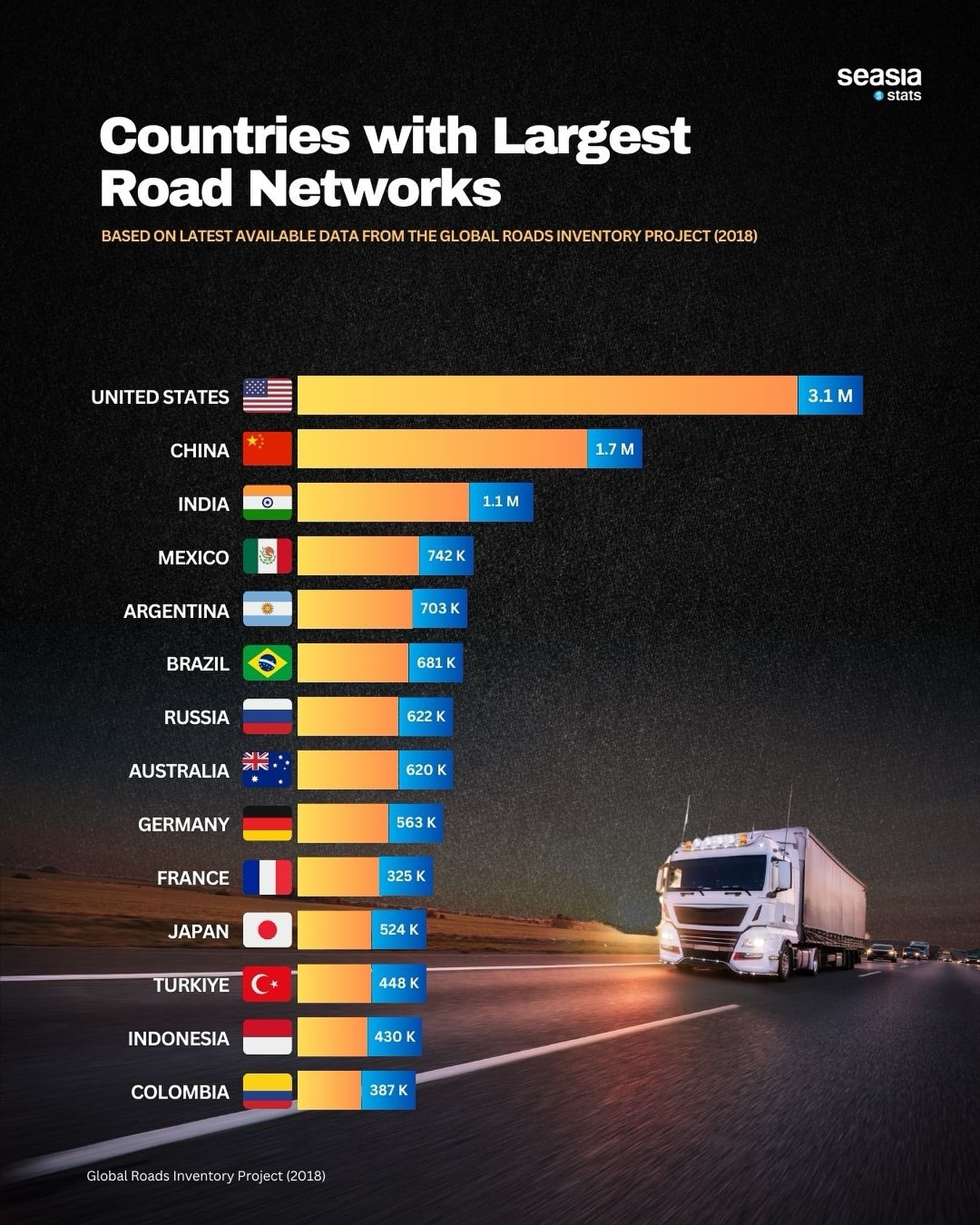**Charting the Countries with the Largest Road Networks: Insights from the Global Roads Inventory Project (2018)**
The Global Roads Inventory Project (GRIP), renowned for its comprehensive database on global road infrastructure, provides valuable insights into the countries with the largest road networks based on its latest available data from 2018. While more recent figures exist from other sources, GRIP’s data remains pivotal for global environmental and biodiversity assessments due to its robust and consistent road density model.
Key Players in Global Road Infrastructure
The United States (🇺🇸), China (🇨🇳), and India (🇮🇳) collectively constitute over one-fourth of the world’s total roadways, highlighting their pivotal roles in global transportation networks. However, the distribution of road infrastructure among these nations varies significantly.
1. United States
The United States leads the global rankings with nearly 3 million kilometers of roads, reflecting its extensive and well-developed transportation network. This vast network supports the country's expansive geographical expanse and diverse economic activities, facilitating both domestic connectivity and international trade.
2. China
China follows closely behind with approximately 1.7 million kilometers of roads. The rapid expansion of China’s road network underscores its economic growth and urbanization, with extensive investments in infrastructure aimed at enhancing connectivity and supporting industrial development across the nation.
3. India
India ranks third with approximately 1.1 million kilometers of roads. The country’s road infrastructure plays a crucial role in connecting its diverse regions, supporting economic activities, and improving accessibility in both urban centers and rural areas. India's ongoing infrastructure projects aim to further expand and modernize its road network to meet growing transportation demands.
The substantial road networks of the United States, China, and India not only facilitate domestic mobility but also contribute significantly to global connectivity and trade flows. These countries serve as critical nodes in international supply chains, enhancing global economic integration and resilience.
The Global Roads Inventory Project’s database serves as a cornerstone for assessing the environmental impact of road infrastructure on global ecosystems and biodiversity. By providing standardized data on road density and distribution, GRIP enables researchers and policymakers to evaluate the ecological implications of road development and implement sustainable transportation strategies.
As global populations grow and economic activities expand, the development and maintenance of robust road networks remain imperative for fostering socio-economic progress and environmental stewardship. The insights gleaned from GRIP’s comprehensive dataset underscore the significance of strategic infrastructure planning and sustainable development practices in meeting the evolving demands of a interconnected world.



















